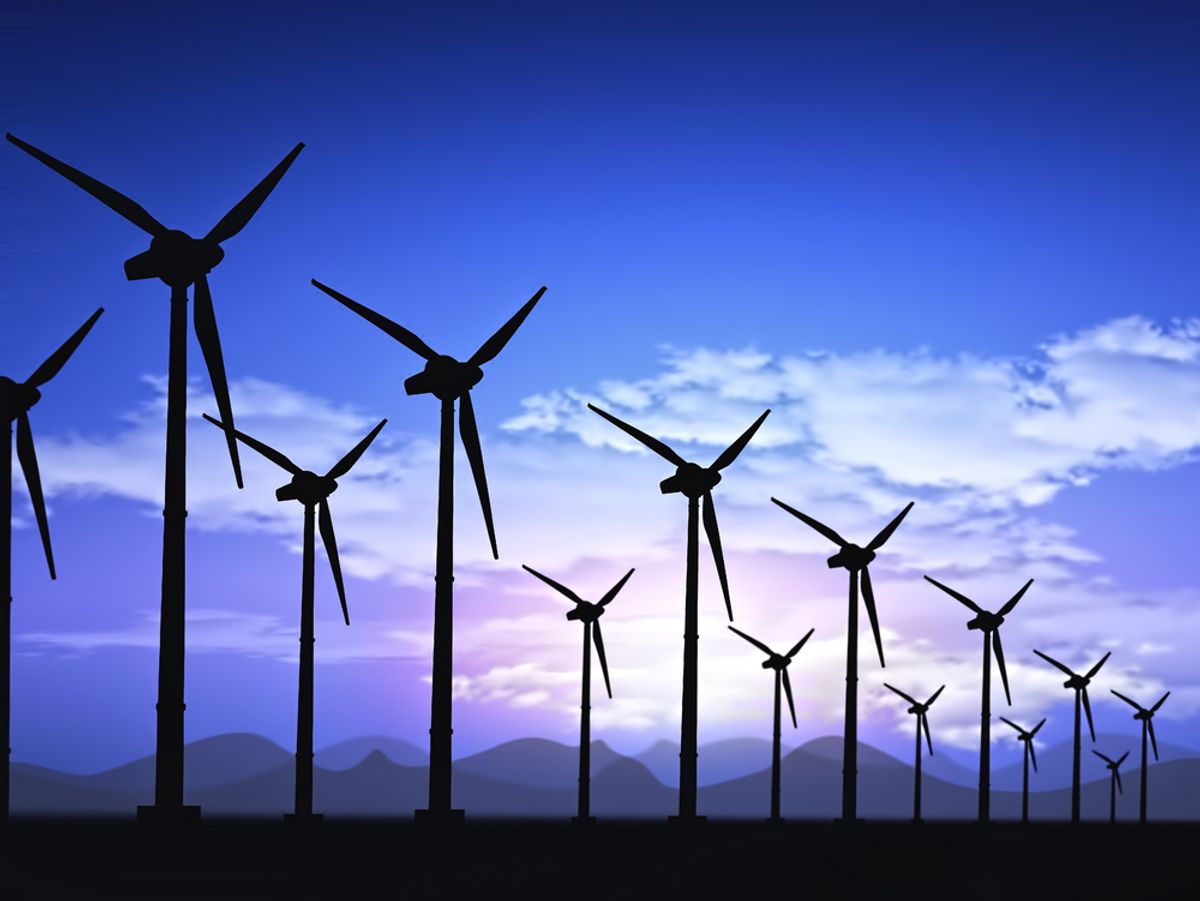Hey, remember that big, important report that claimed we could fight climate change for free? Crazy! You thought, and in some cases told me directly, they only way we can address so-called "climate change" is by plunging the world into economic catastrophe.
Well, the folks at the World Resources Institute are out with a follow-up study, and it too makes a pretty good case for how the U.S., at least, can have it all. What's more, they found that reducing emissions in five key sectors of the economics will provide economic benefits before we even get to the advantages of avoiding droughts, sea level rise, superstorms and other costly effects of climate change. And even better, they've got some concrete examples for how it's already happening.
One example: the Regional Greenhouse Gas Initiative, a regional cap-and-trade program for power plants in nine states that will, during its first three years, save customers nearly $1.1 billion on electricity bills and create 16,000 net job-years while adding $1.6 billion in net present economic value to the region's economy.” Another: Wisconsin's energy efficiency program is expected to add over $900 million into the state's economy, and provide over 6,000 new jobs, over the next decade. "After taking into account the benefits from reduced electricity and natural gas bills as well as avoided air pollution," the report adds, "total benefits are estimated to be three times greater than program costs."
Sounds pretty good, right? Here's the rundown, via the WRI's blog, of some other benefits we could see across these five sectors:
- Reduce the carbon intensity of energy generation: New natural gas generation is significantly cheaper than new coal-fired power plants, and renewable energy is becoming increasingly cheaper than most. Up the renewables, the report finds, and ratepayers could save from $83 to $241 -- per person -- on electricity costs.
- Improving efficiency: This one's easy: use less electricity, and you pay less. State efficiency programs, according to the report, save customers $2 to $5 for every $1 that's invested.
- Building cleaner cars: If we could get vehicle emissions down 80 percent below 2005 levels, we'd accrue $670 billion to $2.3 trillion in fuel costs.
- Getting natural gas leaks under control: The big problem with natural gas as a replacement for CO2-emitting fuels is that its impact on the climate, when leaked, is a lot more powerful than carbon's -- and it leaks a lot. If the entire industry were to adopt best practices, they could increase their revenues by $1.5 billion, while significantly reducing emissions.
- Reducing consumption of HFCs: We did this once, with the ozone-saving Montreal Protocol, and the report argues that we can do it again for HFCs, the commonly used refrigerants that also have a disastrous climate impact. Our standard setter: Heineken, which saved 15 percent on the price of its coolers through a large-scale investment in HFC-free versions.
“States, companies, and federal agencies have been demonstrating for years that there is much that can be done to reduce greenhouse gas emissions while providing net economic benefits to average Americans,” Nicholas Bianco, the report's lead author, said in a statement. “Now the question is whether the nation will build on that success by scaling up its investment in low-carbon technologies that save money." It would seem it's time for the people in charge to start paying attention.

Shares